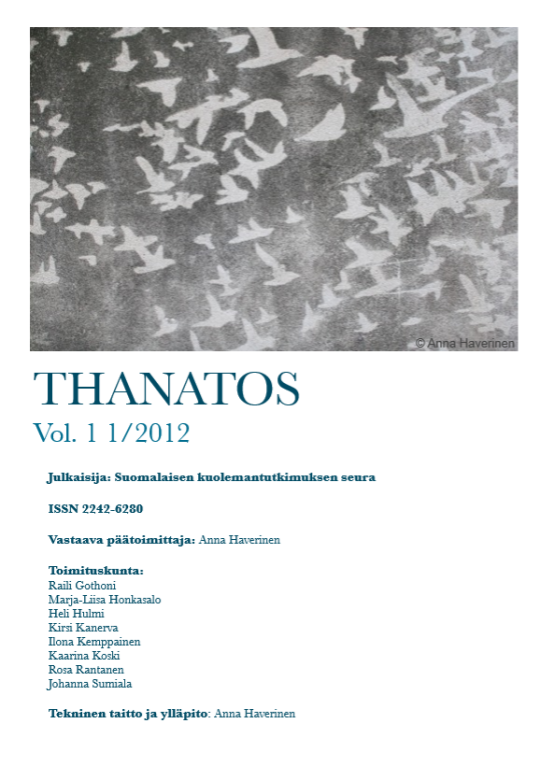An inherited name as the foundation of a person’s identity: How the memory of a dead person lived on in the names of his of her descendants
Abstract
A personal name has always played a central role in the formation of an individual’s identity. In addition to the surname, the forename also defined his or her place within the family community, which for most people was the most important target in the identification process, especially in the early modern period. The identities of the persons in rural families were also to a great extent based on personal names inherited from forebears and the images thus created. In this article, I examine to what extent the naming practices of the population in the hinterland Finnish countryside and the identities created by them were connected with ancestors. The study spans a quite long period, from the eighteenth right up to the mid-twentieth century. The inherited names that were given to children symbolized the family connection between the deceased and later generations. For example, the choice of a name in an emergency baptism was affected by the parents’ fear that their baby might perish. And if an older child of the family died, it was possible to give a later one an inherited name that had been vacated in the family with the passing away of the deceased child. These namesake names carried the memory of both the ancestor and the child who had perished at an early age. The deceased could in this way continue their lives symbolically in the forenames of later born namesakes.
Downloads
Published
Issue
Section
License
Copyright (c) 2023 Sofia Kotilainen

This work is licensed under a Creative Commons Attribution-NonCommercial-NoDerivatives 4.0 International License.





